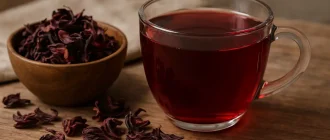Essential oils like lavender and bergamot can lower blood pressure naturally. Learn safe and effective ways to use them here.
Effectiveness of Essential Oils in Reducing Blood Pressure
| Essential Oil | Systolic Reduction (%) | Diastolic Reduction (%) |
|---|---|---|
| Lavender | 4% | 3% |
| Ylang-Ylang | 5% | 4% |
| Bergamot | 6% | 5% |
| Clary Sage | 3% | 2% |
Can Essential Oils Help Manage Blood Pressure?
The idea of using essential oils to lower blood pressure might sound like wishful thinking, but it has a basis in science. These natural plant extracts contain compounds that can influence mood, reduce stress, and even have direct physiological effects on the cardiovascular system.
How Do Essential Oils Work?
Essential oils work by interacting with the limbic system—the part of the brain that regulates emotions, heart rate, and blood pressure. When inhaled or applied topically (appropriately diluted), these oils can help relax the body, which indirectly reduces blood pressure.
Did You Know?
Lavender essential oil is so effective at promoting relaxation that it’s been used in hospital settings to help patients manage anxiety. A study in the Journal of Cardiovascular Nursing found that lavender aromatherapy reduced blood pressure and heart rate in hypertensive patients.
Top Essential Oils for Lowering Blood Pressure
Here’s a look at the most effective essential oils and how they contribute to better heart health:
1. Lavender Oil
- Mechanism: Lavender is a natural relaxant and anxiolytic.
- Use: Diffuse in your home or mix with a carrier oil for a soothing massage.
- Research: A 2021 study reported that lavender oil reduced systolic blood pressure by an average of 4-6 mmHg in hypertensive patients.
2. Ylang-Ylang Oil
- Mechanism: Ylang-ylang promotes vasodilation and calms the nervous system.
- Use: Add a few drops to a warm bath or a diffuser.
- Research: A trial published in Complementary Therapies in Medicine demonstrated significant reductions in blood pressure after inhaling ylang-ylang.
3. Bergamot Oil
- Mechanism: This citrus oil reduces cortisol levels and improves circulation.
- Use: Inhale directly or combine with a massage oil for topical application.
- Research: Studies have shown that bergamot reduces both systolic and diastolic blood pressure, with a noticeable impact on mood as well.
4. Clary Sage Oil
- Mechanism: Clary sage decreases cortisol, which helps regulate blood pressure.
- Use: Combine with a carrier oil and apply to pulse points or diffuse.
- Research: A 2020 study highlighted clary sage’s efficacy in reducing stress-induced hypertension.
Are Essential Oils Safe?
While essential oils can be highly beneficial, they must be used with caution:
- Dilution: Always dilute essential oils with a carrier oil (like coconut or almond oil) before applying to the skin.
- Consultation: If you’re on medication for hypertension, talk to your healthcare provider before using essential oils.
- Allergies: Test a small amount on your skin to check for allergic reactions.
The Role of Stress in Hypertension
Stress is one of the leading contributors to high blood pressure. Managing stress is a crucial part of any treatment plan, and this is where essential oils shine. By promoting relaxation, they help break the cycle of stress and hypertension.
Did You Know?
Chronic stress increases blood pressure by stimulating the adrenal glands to release more cortisol. Over time, this wears down the cardiovascular system.
Incorporating Essential Oils into Your Routine
- Morning Routine: Start your day with energizing oils like bergamot to improve mood and reduce stress.
- Midday Break: Diffuse ylang-ylang in your workspace for a quick calming effect.
- Evening Wind-Down: Use lavender oil in a diffuser or add it to a bedtime bath for a restful sleep.
Most Common Methods of Using Essential Oils
| Method | Percentage of Users |
|---|---|
| Diffuser | 50% |
| Massage | 30% |
| Direct Inhalation | 15% |
| Bath | 5% |
Table: Quick Guide to Essential Oils for Blood Pressure
| Essential Oil | Key Benefit | Suggested Use |
|---|---|---|
| Lavender | Stress reduction | Diffuser, massage |
| Ylang-Ylang | Nervous system calming | Bath, inhalation |
| Bergamot | Mood elevation | Direct inhalation, massage |
| Clary Sage | Cortisol regulation | Topical application, diffuser |
What the Science Says
The research into essential oils and blood pressure management is promising, but it’s not a replacement for conventional medicine. Essential oils should complement a broader strategy that includes diet, exercise, and medical treatment when necessary.
Did You Know?
The DASH (Dietary Approaches to Stop Hypertension) diet, when combined with stress management techniques like aromatherapy, can amplify its blood pressure-lowering effects.
Editorial Advice
While essential oils can be a helpful part of managing high blood pressure, they’re most effective when paired with a healthy lifestyle. Ensure you’re eating a balanced diet, exercising regularly, and consulting your doctor about the best overall approach. Aromatherapy is a delightful addition, but consistency and safety are key.
About the Author
Reyus Mammadli is the author of this health blog since 2008. With a background in medical and biotechnical devices, he has over 15 years of experience working with medical literature and expert guidelines from WHO, CDC, Mayo Clinic, and others. His goal is to present clear, accurate health information for everyday readers — not as a substitute for medical advice.







